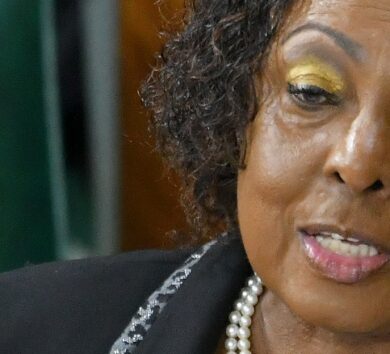
Conservation group BirdsCaribbean is voicing its concern with proposed changes to the United States’ Migratory Bird Treaty Act (MBTA)—which, it argues, will significantly increase hazard levels for migratory birds across the Americas.
BirdsCaribbean, in a statement on Monday (December 7), said that despite assurances from the Department of the Interior, changes to the MBTA would effectively remove liability from large corporate entities.
“We are deeply concerned by the persistent efforts to undermine the MBTA, which has protected our birds for well for over a century,” said Executive Director Lisa Sorenson.

The Trump administration took a step toward rolling back protections for migratory birds and reducing penalties for companies that inadvertently kill them.
The Fish and Wildlife Service published its final environmental impact statement for regulations governing the killing of migratory birds on Friday, November 27.
This bolstered the administration’s proposal to reinterpret the 1918 migratory bird statute by limiting the definition of an illegal “taking” under the law to deliberate actions, so shielding from penalty energy companies, developers and others who inadvertently kill birds.
In its statement, BirdsCaribbean argued the proposed changes will further threaten already endangered species.

“Many of the 350 migratory bird species that breed in North America and winter further south are already endangered. This proposed action is another setback for the many international conservation organisations such as ours that are working diligently together to protect these species,” Sorenson said.
“Scientists, researchers, and governments across the region have been collaborating to create networks such as the Western Hemisphere Shorebird Reserve Network that are critical to the birds’ survival,” she added.
Migratory birds already have to contend with numerous obstacles, including the growing impacts of climate change as well as a spectrum of human activities that damage habitats and cause deaths, such as oil spills and collisions with infrastructure (glass).
The organisation continued that these animals must be protected throughout their annual cycles, including where they breed, overwinter, and stop to refuel during their remarkable journeys.

“Migratory birds are the life and soul of the Americas,” noted Sorenson.
“Not only do migratory birds bring diversity and an irreplaceable balance to our ecosystems, they bring happiness to individuals and communities across the region, who look forward to their arrival each year. Whether tiny warblers, birds of prey, or shorebirds, migratory birds are embedded in the cultures—and oftentimes livelihoods—of all the countries they visit. Every year on World Migratory Bird Day we celebrate their unique qualities and recognize the amazing natural phenomenon which is migration, about which there is still so much to learn,” she said.
This is not the first time that the US Department of the Interior has attempted to weaken the MBTA rule.
The proposed efforts were previously rejected by a federal district court back in December 2017.
According to BirdsCaribbean, if successful this time, this change will add to more than 125 environmental policies that have been undermined by the Trump administration, causing untold harm to the environment and bird habitats.

With over 32 years’ experience, BirdsCaribbean commits to conserving Caribbean birds and their habitats in the insular Caribbean (including Bermuda, the Bahamas and all islands within the Caribbean basin).







Comments